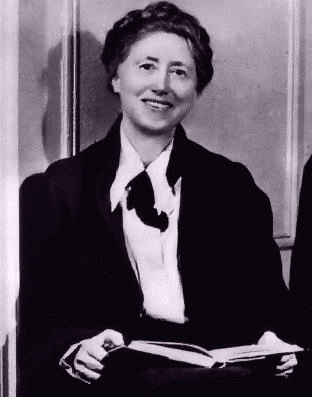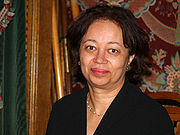Serendip is an independent site partnering with faculty at multiple colleges and universities around the world. Happy exploring!
Day 7--On Working Analogously
On Working Analogously

"Do the poet and scientist not work analogously? Both are willing to waste effort. To be hard on himself is one of the main strengths of each. Each is attentive to clues, each must narrow the choice, must strive for precision." (via both Joanna and Jackie R's orgo lab manual:
Marianne Moore, BMC '09: biology & histology-->
Pulitzer Prize-winning American poet!)
Both poets and scientists (I'd say)
also look to shape patterns out of details
(from Joseph Carroll's introduction to
On the Origin of the Species:)
"in Darwin's theory classification ceased to
be merely descriptive and became explanatory"(12);
or, as He Himself says towards the end of the text,
"something more is included in our classification,
than mere resemblance...propinquity of descent"(351);
be merely descriptive and became explanatory"(12);
or, as He Himself says towards the end of the text,
"something more is included in our classification,
than mere resemblance...propinquity of descent"(351);
in other words, Darwin designed a story
to explain the similarities and differences among species:
he developed a history for the
relations among the categories.
Looking, likewise, for patterns
of similarity and difference
in our Week 3 Forum,
he developed a history for the
relations among the categories.
Looking, likewise, for patterns
of similarity and difference
in our Week 3 Forum,
I was guided by Lindsay's caution: a forced binary...is meant to simplify things.... it is
just easier to make everything fall into a
category...Where is the love for what falls in between?
----------
Contra Arielle's friend: evolution has already been proved
Julia: no observations are capable of disproving evolution....
this property renders the story of evolution not scientific....
Abby: I would say Darwin's "not a foundationalist," but he's not a
non-foundationalist...there's a difference between something not supported by fact
and something that is dis-proven through fact.
Adele: a fictional text is reality which
encounters some inexplicable facts...wasn’t this Darwin’s case?
weren’t there some unexplained facts...he did not have enough knowledge
to explain? So, Darwin could have written...a fictional book.
Rica: As a storyteller I do not believe he is
agreeable....the way in which he tells his story is confusing at times,
especially because he explains everything in great detail. I feel that
people who like or do believe in Darwin’s story would call
this book non-fiction and those who think otherwise may say it is
fiction. I think the same concept holds true for the bible to smaller
extent.
Keely: it seems to me that no "non-fiction" book can be completely
true....Doesn't the author's...converting it to words always change something?
Doesn't the author always? put some of their own ideas and
interpretations into the writing? Maybe
non-fiction refers not to the truthfulness of the information set
forth, but the author's intent. Does the author intend to write what
they saw and experienced or something
out of their imagination?...Now I'm
starting to confuse myself. Memory is unreliable....Can it be
considered non-fiction because I am writing from a memory?
Morgan: Darwin kept playing safe by saying well I don't have all the answers but
from my data this is my theory. I can see that he leaves his theories
open to be proven wrong or added to but I feel that Darwin wasn't very
confidant about some of his ideas. And if he wasn't confidant why
should I believe his theory?
Saloni: I think the success of what Darwin was explaining
through his book depended a lot on personal views. Does
an individual want to hear that he/she is only a "successful variation"
and has come to be so due to natural selection? Or would that
individual prefer to be the descendant of some magical creation of a
supreme being called God?
Jillian: The currently "accepted" story of evolution is that changes in the species occur as results
of random environmental stimuli....The idea that we as humans do not exist for any specific reason is
empowering to me, because it means that we each have the opportunity to
choose and fulfill a purpose for ourselves as individuals.
Dan: In this sense Darwin is an optimist. He views each person as being able to determine their own happiness and destiny.
Fatima: However what struck me was that everything that has happened in
evolutionary history, has been the product of mere chance....it is very likely
that the environment may change again where humans may die and another
species can dominate. It's a little scary to think about that....It doesn't bother me, but I
don't know what to make out if it either.
Laura:
I think that students of all ages should be given more credit and given access to different stories.
Abayla: all of what I believed to be confusions about Darwin, started
turning into questions I want to explore.
Tim: I'm wondering what kind of formidable summaries of observations it would take to unseat his theory...
I've been starting to think about how evolution could be applied to human societies....Perhaps various ideologies prevent evolution, such as
various fundamentalisms, which by definition resist change....a
globalized, worldwide...society
prevents variation...
Marina: I've just started reading The Evolution of Cooperation, by Robert Axelrod...cooperation...can be seen as an evolutionary result, creating a “evolutionary stability".....
Marina: I've just started reading The Evolution of Cooperation, by Robert Axelrod...cooperation...can be seen as an evolutionary result, creating a “evolutionary stability".....
 |
“We rarely win the victories we think we are fighting for.”
Patricia Williams
“liberation” looks different in different contexts
“liberation” looks different in different contexts
Sarah: a speciation event is a rather restricting term. It implies that there is a single moment when a new species emerged...a new species emerges over time, and not in any single moment (or generation).
Today's Science Times went kafloey over Darwin; see
Genes Offer New Clues in Old Debate on Species' Origin;
Crunching the Data for the Tree of Life;
Seeing the Risks of Humanity's Hand in Species Evolution;
Darwin the Comedian. Now That's Entertainment!
On Darwin's Origin of the Species
(Few people who are not biologists read Darwin in the original. But his writing can still offer surprises, insights and pleasures, and it can be sampled here, with selections by prominent scientists of their favorite passages and discussions of why these passages are important)
and, most especially
Darwin Must Die, So That Evolution Can Live:
making a master teacher into a sacred fetish
misses the essence of his teaching.
So let us now kill Darwin.
making a master teacher into a sacred fetish
misses the essence of his teaching.
So let us now kill Darwin.


